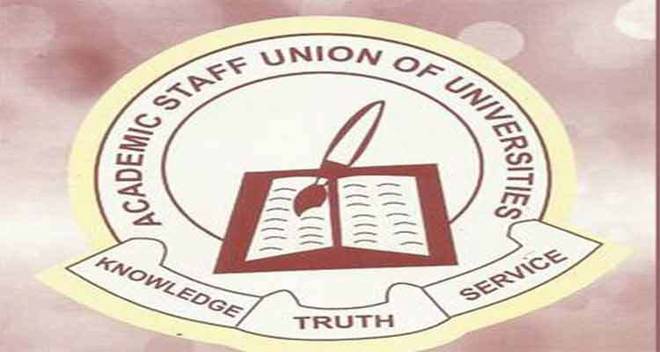The Nigerian nation has continued to travel on reverse gear because its journey is bedevilled by untruths, deceit and thwarted dreams and desires.
Honesty, honour, truth and humanistic sympathy have all but taken leave of the ruling class and the citizens have been reduced to mere playthings in the hands of the rulers.
But let me not sermonize about Nigerian leadership and turn to Academic Staff Union of Universities (ASUU), which is the theme of my story.
It’s clear that in the year 2001 precisely, the Nigerian government signed an agreement with the union of University teachers (ASUU).
The intention of that agreement was to fund Nigerian Universities properly in order to revitalize and furnish them to international standards.
But from the regime of Obasanjo to that of Yaradua, to Jonathan and Buhari, it has been the same drama of sham, indifference and disdain.
Promises were made but not fulfilled, negotiations began and were stopped only to begin again and stop. For the past two decades, no Nigerian leader has dealt with the ASUU- FGN agreement seriously, sincerely and honourably.
From 2001 to date, the rot in the University system has also continued unhindered; from 2001 till date the University teachers have embarked on several warning strikes and an indefinite strike all in an attempt to press the Nigerian government to tread the path of honour by respecting its promises.
Talking about University autonomy reminds one of the Federal Government’s recent disregard and debasement of intellectual labour by imposing the IPPIS on University teachers.
University autonomy is a global practice associated with Universities all over the world and if the Nigerian government denies Nigerian Universities autonomy it will be another unfortunate reflection of the levity and contempt with which Nigerian leaders treat serious national issues.
The on-going ASUU strike may not have profound impact for now because of the dreaded global COVID:19, but when our medical experts find a cure for this pandemic in the not-too-distant future, parents will begin to ask questions why their children are still at home.
Lamentably, ASUU has earned the wrath of the Nigerian public as an intransigent, strike-prone and insensitive union for embarking on strikes to draw attention to the problems of University education in Nigeria. This kind of attitude is not surprising, it is only amazing.
Here in Nigeria, intellectual labour is not prized and the teacher is treated as a criminal because of his capacity to seek, find and tell the truth.
As a parenthetical remark, the Nigerian Medical Association called out it members on a national strike during the present CO1VID:19 and the President of Nigeria hurriedly approved huge sums of money as extra-budgetary allocations for their hazard allowances.
The irony of that strike was that, medical doctors usually take an oath to professionally serve humanity in all circumstances. But in our precarious situation in Nigeria, where Medical Doctors work without Personnel Protective Equipment (PPE), it dawned on the medical doctors that a strike is the only language the Nigerian government can understand.
Again, many unsuspecting members of the Nigerian public think that ASUU strikes are meant to demand for higher pay or salaries. This isn’t true.
One of the strategies Nigerian governments (past and present) have adopted, though without success, to punish and muzzle ASUU has been the stoppage of salaries.
Obasanjo’s regime stopped ASUU salaries for close to eight months, Jonathan stopped ASUU salaries for six months and the Buhari government has done that for five months. This is usually a deliberate ploy to make ASUU hungry and miserable, so that the Union will cower at the negotiating table.
What is clear for now is that ASUU can endure hunger, ASUU can accept poverty and misery but by far the most outstanding characteristic of ASUU is its magnanimity and the capacity to turn the other cheek. In no other branch was ASUU’S generosity demonstrated with complete abundance than at the University of Jos.
From 2009 to 2011, the ASUU University of Jos Branch requested its members to make voluntary contributions/donations from their, paltry and sometimes withheld, salaries for the construction of a 1000 capacity Twin Lecture Theater.
The deductions went on for fifteen months and the branch raised a whopping 63.2 Million Naira for the project. On Friday, July 2020, the Lecture Theater was officially commissioned by ASUU national President and handed over to the management of the University of Jos.
While this gesture is historic, exemplary and first of its kind in Nigeria, it is also outstanding for reasons that are perfectly clear.
For a Union that has often been starved, punished and vilified by various Nigerian governments to raise money from the meagre salaries of its members for the construction of a lecture theatre is not only heroic but commendable.
The construction of the lecture theatre has helped to clear the misconceptions about ASUU strikes.
Is it not the height of irony that the University teacher who is quite often denied his pay would use his meagre resources to construct a lecture theatre and donate same to his employer?
Is it not the height of irony that the University teacher who is publicly perceived as a ‘troubleshooter’ is the one taking the lead in infrastructural development in society?
The construction of the Lecture Theater was made possible because the deductions and donations made by the ASUU University of Jos Branch were done before the Nigerian government forcefully migrated ASUU into the IPPIS.
This again brings us to the question of the veracity of the IPPIS. The truth remains that the IPPIS has no way of advancing University autonomy because it is by its very nature retrogressive.
For example, the IPPIS does not make room for third party deductions. A situation whereby University teachers are coerced and forced into the IPPIS, they would be denied the opportunity of making donations, contributions and deductions that would enable the union to embark on more meaningful projects for the development of education and the Nigerian society.
Doki is a writer and Professor of Comparative Literature with the University of Jos (UNIJOS), Nigeria

 Join Daily Trust WhatsApp Community For Quick Access To News and Happenings Around You.
Join Daily Trust WhatsApp Community For Quick Access To News and Happenings Around You.


